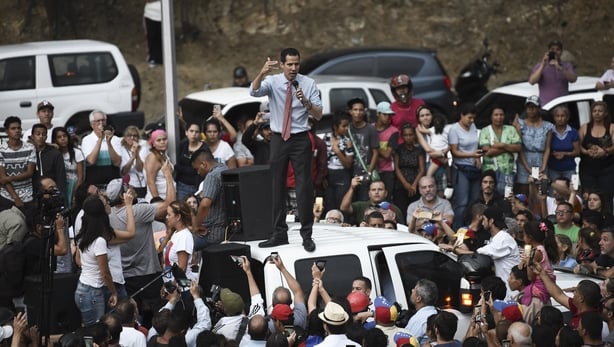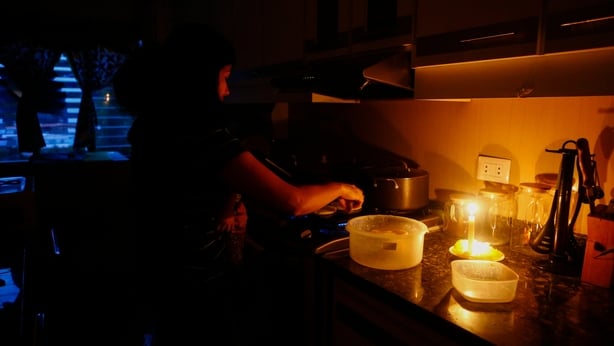Venezuela has ordered US diplomats to leave within 72 hours after President Nicolas Maduro accused his counterpart Donald Trump of cyber "sabotage" that plunged the South American country into its worst blackout on record.
"The presence on Venezuelan soil of these officials represents a risk for the peace, unity and stability of the country," the government said in a statement, after talks broke down over maintaining diplomatic ties between the two countries.
Chief Prosecutor Tarek Saab said yesterday that he was asking Venezuela's pro-Maduro Supreme Court to open an investigation into opposition leader Juan Guaido for participating in the alleged sabotage.
The US has taken the lead in recognising Mr Guaido as Venezuela's rightful president after the 35-year-old congress chief declared himself interim president in January, calling Mr Maduro's 2018 re-election a fraud.
Most countries in Europe and Latin America have followed suit.
The US has implemented a raft of sanctions to put pressure on Mr Maduro, and the US special envoy on Venezuela, Elliott Abrams, said that Washington was prepared to impose "very significant" additional sanctions in the coming days against financial institutions deemed to be supporting Mr Maduro's government.
Mr Maduro, who retains control of the military and other state institutions, as well as the backing of Russia and China, has blamed Washington for his nation's economic turmoil and denounced Mr Guaido as a puppet of the US.
With the power blackout in its sixth day, hospitals struggled to keep equipment running, food rotted in the tropical heat and exports from the country's main oil terminal were shutdown.
Mr Guaido joined a series of small opposition demonstrations around Caracas yesterday to protest the blackout, where he mocked the prosecutor's investigation.

"So that guy comes out and says we're guilty of a supposed sabotage when all of Venezuela knows, when the whole world knows, who the real saboteur is ... I'm going to call him out by name: Maduro!" he shouted.
Power has returned to many parts of the country, including some areas that had not had electricity since last Thursday, according to witnesses and social media.
But power was still out in parts of the capital of Caracas and the western region near the border with Colombia.

US Secretary of State Mike Pompeo said in an interview with radio show Texas Standard that decisions regarding Venezuela had been affected by the combination of a rapidly deteriorating situation and US diplomats being "in harm's way".
Amid signs of a growing crackdown on media, the National Press Workers' Union said that prominent radio journalist Luis Carlos Diaz was arrested on Monday by intelligence agents, who raided his home in Caracas.
The Information Ministry did not immediately respond to a request for comment.
Venezuelan authorities briefly detained US journalist Cody Weddle last week before ordering him to leave the country.

